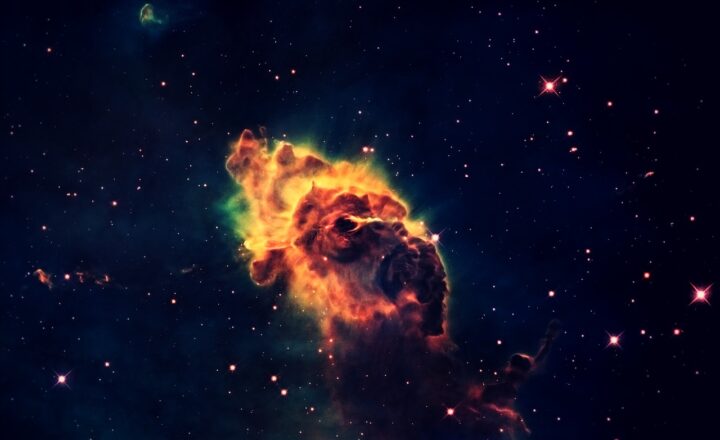The Secrets of Deep Space Exploration and What We’ve Learned About the Universe
November 18, 2024

Deep space exploration has captivated the human imagination for centuries. The idea of venturing beyond our home planet to uncover the secrets of the universe is one of humanity’s greatest aspirations. From ancient astronomers studying the night sky to the latest robotic missions to Mars, our thirst for knowledge about the cosmos has led us to some remarkable discoveries. In this article, we will explore the evolution of deep space exploration, the technologies that have enabled it, and the profound lessons we have learned about the universe.
1. The Evolution of Deep Space Exploration
Deep space exploration began in earnest during the 20th century. Early efforts focused on sending probes and spacecraft beyond the confines of Earth’s atmosphere. Notable milestones include:
- The Space Race: With the launch of Sputnik 1 by the Soviet Union in 1957, humans entered the space age. This sparked a race between the United States and the USSR to explore the cosmos, leading to missions that reached the Moon and beyond.
- Voyager Probes: Launched in 1977, Voyager 1 and Voyager 2 are among the most iconic missions in the history of space exploration. These probes provided humankind with stunning images and data from the outer planets, revealing the beauty of the gas giants and their moons.
- Mars Exploration: Missions such as Mars Rover Curiosity and Perseverance have revolutionized our understanding of the Red Planet, searching for signs of past life and preparing for future human exploration.
- Interstellar Probes: Efforts like the New Horizons mission to Pluto and beyond push the boundaries of our solar system and teach us about distant celestial bodies, extending our knowledge beyond just planets and into the Kuiper Belt and beyond.
As these missions unfolded, our understanding of the universe significantly evolved. What we have learned has not only deepened our knowledge of solar systems but also changed our perspective on humanity’s place in the cosmos.
2. Key Technologies in Deep Space Exploration
Successful deep space exploration relies on cutting-edge technologies that allow us to send probes and spacecraft to far-flung corners of the universe. Here are some pivotal innovations:
- Launch Vehicles: Powerful rockets, such as SpaceX’s Falcon Heavy and NASA’s Space Launch System (SLS), have enabled the delivery of heavy payloads into orbit and beyond. These launch vehicles are critical for missions intended to reach deep space.
- Robotic Exploration: Robotic rovers, landers, and orbiters have allowed us to explore planets without the risks associated with human space travel. These machines can analyze samples, take pictures, and send valuable data back to Earth.
- Communications Technology: Advancements in communication systems streamline data transmission from deep space missions back to Earth. High-gain antennas and relay satellites allow us to receive vast amounts of information from distant locations, overcoming the challenges posed by distance and time lag.
- Artificial Intelligence and Autonomy: AI systems are increasingly being integrated into spacecraft for autonomous decision-making during missions. This capability is particularly essential in deep space, where communication delays can hinder remote control from Earth.
These technologies not only enable exploration but also enhance our ability to gather and interpret data about the universe around us.
3. What We’ve Learned About the Universe
Deep space exploration has yielded profound discoveries that shape our understanding of the cosmos:
- The Nature of Space and Time: Probes have offered insights into the fabric of space-time, revealing how gravity influences the motion of celestial bodies and affects light. Observations from missions that study gravitational waves have further confirmed Einstein’s theories on relativity.
- The Presence of Water: Discoveries of water ice on Mars, Europa, and Enceladus have changed our understanding of the potential for life beyond Earth. These findings bring us closer to answering the question: Are we alone in the universe?
- Exoplanets and the Search for Life: The Kepler Space Telescope has identified thousands of exoplanet candidates, many located in the habitable zone of their stars. This has prompted a new era of astrobiology, focusing on the conditions necessary for life to exist elsewhere.
- The Expanding Universe: Hubble Space Telescope observations have provided evidence for the accelerating expansion of the universe, leading to theories about dark energy and the ultimate fate of the cosmos.
These revelations inspire curiosity and ongoing research, fueling future missions aimed at uncovering even deeper mysteries.
4. Future of Deep Space Exploration
The future of deep space exploration is bright and full of potential. Some of the exciting missions on the horizon include:
- Artemis Program: NASA’s plan to return humans to the Moon by 2025 is just the beginning. This program aims to establish a sustainable lunar presence and prepare for Mars missions in the coming decades.
- Mars Sample Return Mission: The collaboration between NASA and ESA to extract and return samples from Mars could hold the key to determining if life ever existed on the planet.
- James Webb Space Telescope (JWST): Launched in December 2021, this telescope is designed to observe the most distant objects in the universe, providing unprecedented insights into the formation of planets, stars, and galaxies.
- Interstellar Missions: Future probes, like the proposed Project Longshot, could explore stars beyond our solar system, opening new frontiers for human understanding of the Milky Way and beyond.
These missions not only expand our scientific knowledge but also invite public engagement and interest, showcasing the collective human endeavor of exploration.
Conclusion
From our earliest observations of the stars to the latest robotic missions exploring distant planets, deep space exploration has enriched our understanding of the universe. As we continue to unravel the mysteries of space, our pursuit of knowledge inspires future generations to dream, discover, and believe that the cosmos holds secrets waiting to be unveiled. Humanity has only just begun to scratch the surface of what lies beyond our planet, and the future holds limitless possibilities as we embark on exciting new missions into the final frontier.








